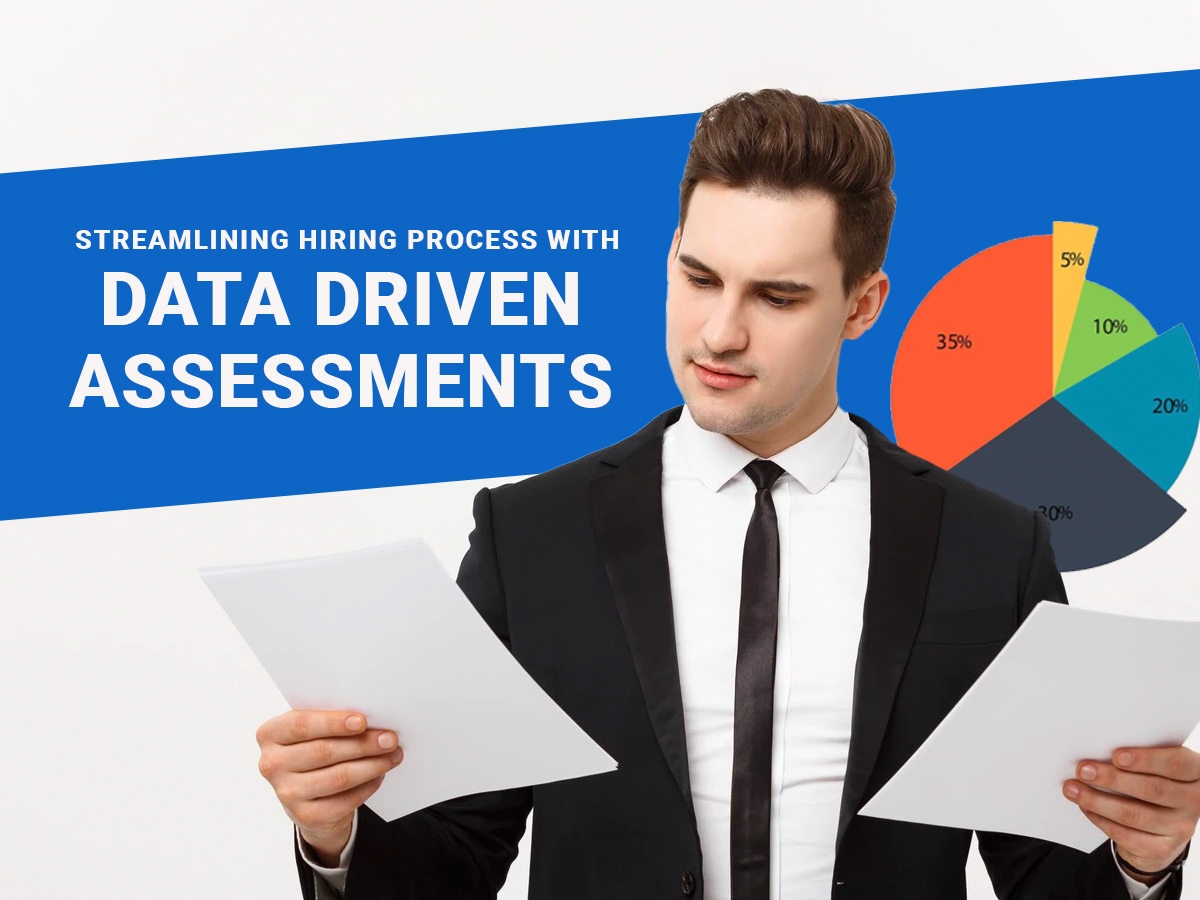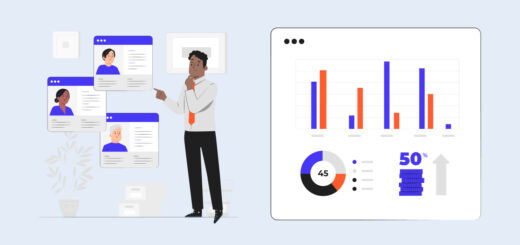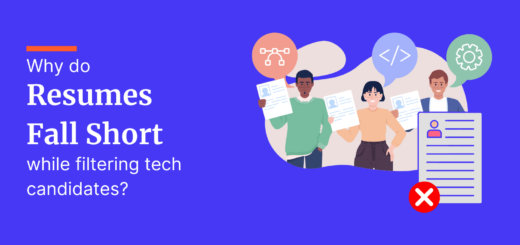Benefits of Data-Driven Assessment With Structured Interviews

Introduction
Whether you are looking to hire a new employee or searching for a job yourself, the job interview is an essential part of the process. But in today’s highly competitive job market, it is not enough to conduct a traditional job interview only. To ensure that the right candidate is chosen for the job role, employers are turning to a data-driven hiring process with structured interviews as a way to hire top talents and the most suitable hires for a particular role.
Driving Strong Hires Through Data-Driven Assessments
Data-driven assessments are a powerful tool for employers to identify the best candidates for a position. These assessments involve gathering data from potential candidates and analyzing it to gain insight into their skills, abilities, and overall fit for the job. Data-driven assessments can include personality tests, aptitude tests, and technical assessments. This data can then be used to make more informed hiring decisions and identify those candidates who are most likely to be successful in the role.
Data-driven assessments offer employers numerous advantages. By gathering data on potential hires, employers can gain a better understanding of the candidate’s skill sets, as well as their overall fit for the position. This data can be used to make more informed decisions and reduce the risk of hiring the wrong person. Additionally, data-driven assessments can help employers identify ideal candidates faster, reducing the time to hire and improving the efficiency of the recruitment process.
Data-driven assessments can also help employers drive strong hires. By gathering data on potential hires, employers can gain more significant insights into their skills and abilities and make better-informed hiring decisions. Additionally, data-driven assessments can help employers ensure that they are selecting suitable candidates for the job role, thus reducing the risk of hiring the wrong professional.
Not All Talent Assessments Are Created Equal
When it comes to evaluating job seekers, not all talent assessments are created equal. Many employers rely on traditional job interviews to assess a candidate’s qualifications, but this process can be subjective and lead to hiring decisions that are not based on merit. Using a data-driven assessment with structured interviews can help employers make more informed decisions about whom to hire. Structured interviews are designed to evaluate a job seeker’s qualifications and skills at a higher level than traditional job interviews.
Through structured interviews, employers can ask specific questions that target a candidate’s qualifications while allowing them to discuss their job experience and provide evidence of their ability to perform in the job. Structured interview questions are designed to allow the candidate to provide detailed answers. It allows the interviewer to focus on the job seeker’s qualifications and get a better understanding of how they can contribute to the company and if their values align with the company.
Advantages of Structured Interviews
Using a data-driven assessment with structured interviews can provide several advantages to employers, including the benefits of data-driven recruitment. Here are just a few of the benefits of using structured interviews:
• Increased Efficiency: Structured interviews are designed to be more efficient and allow employers to evaluate a candidate’s qualifications quickly. It can help employers save time and money during the hiring process, as well as help them quickly identify qualified job seekers.
• Improved Job Performance: By using a data-driven assessment, employers can evaluate a job seeker’s qualifications and skills with regard to the particular job role. It can help employers identify candidates best suited for the job and help them make better hiring decisions that will lead to improved job performance.
• Better Understanding of Job Requirements: By using structured interviews, employers can gain a better understanding of the job requirements and determine which candidates are best suited for the role. It can help them make more informed hiring decisions and ensure that they hire the right candidate for the job.
• Easier to Compare Candidates: Structured interviews can help employers compare candidates based on their responses to similar questions meant for the specific job role. It can help employers easily identify the most qualified candidate for the job.
• Reduced Bias: Structured interviews are designed to reduce bias and ensure that job seekers are evaluated based on their qualifications and skills rather than subjective factors such as age, gender, race, or other characteristics.
Conclusion
Data-driven assessments with structured interviews can be a powerful tool for employers to make informed hiring decisions. By using this type of assessment, employers can better assess a job seeker’s qualifications and skills, as well as evaluate their potential to grow and develop within the company. Structured interviews also allow employers to assess a candidate’s soft skills and better understand how they can contribute to the company culture. Ultimately, data-driven assessments with structured interviews can help employers choose top professionals and ensure they hire the right candidate for the particular job role.
Employers can improve the evaluation of their technical candidates and better assess their technical expertise by outsourcing technical interviews to structured and proof-backed interviewing platforms like HireHunch. HireHunch offers dependable interviewing services to help businesses streamline their technical hiring process and hire top tech professionals, thereby helping businesses scale their tech teams.
FAQs
Q1. What are the advantages of using structured interviews?
The advantages of using structured interviews include the following:
- It provides a consistent method of evaluating candidates.
- It allows for quantifiable results.
- It can help draw the comparison between different candidates.
- It can provide a better understanding of the candidate’s qualifications.
- It can be used to assess a candidate’s suitability for a given role.
Q2. What are the disadvantages of a structured interview?
The disadvantages of structured interviews include the following:
- Time-consuming as there is a continuous process for identifying, developing, and testing a large pool of similar questions for a job post
- Reduced flexibility when dealing with unexpected answers
- Reduced opportunities for the interviewer to build rapport with the candidate
Q3. Why is data-driven recruitment important?
Data-driven recruitment is important because it enables organizations to make informed decisions about their candidates in order to find the best fit for a job role. It allows recruiters to compare data from different types of candidates, such as their skills and experience, to help them make decisions. Data-driven recruitment also helps to reduce bias in the recruitment process.



